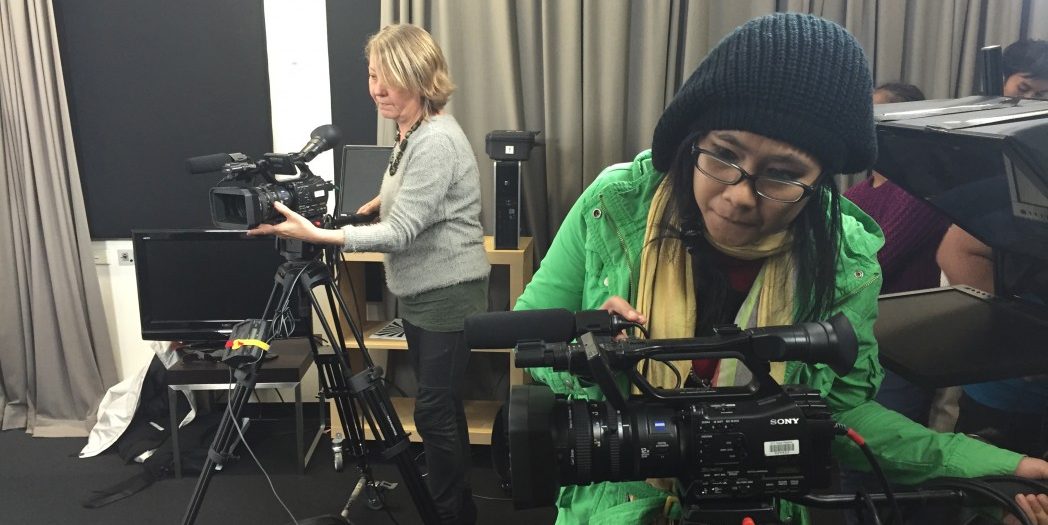FOOD STOCK is insufficient level and prone to the threat of food insecurity as demands grow.Vice President Boediono said Indonesia is rich in natural resources, but it’s not able to enhance the food productivity to a safe level.
“Without systematic and serious measures, the food insecurity will continue to be a threat,” Boediono said when opening the 31th World Food Day in Bone Bolango Regency, Gorontalo as quoted Bisnis Indonesia.
World Food Day is declared by Food and Agriculture Organization (FAO) and has been celebrated in over 147 countries. Today, Indonesia uses a theme of 2011 HPS, Maintaining Price Stability and Food Access towards National Food Security.
Gorontalo was chosen to host the event as the province is one of the corn-producing centers and has succeeded in diversifying other food than rice. Vice president added that government put the efforts to intensify food availability and security as its first priority.
Indonesia must secure this food self-sufficiency as this happens to be the domestic and global interests.“The risk is too high if we are satisfied with the current “sufficient” food stock as food, economic and social vulnerability will still haunt us,” he said.
Indonesia must also establish a surplus over its major food commodities such as rice, sugar, corn, fish and meat merely to ensure the food security itself. The measures to create food surplus is feasible as all food sources are available in Indonesia.
In the commemoration of World Food Day on 16 October 2011, FAO reminded the global food crisis threat, prompted by rising global population of seven billion people this month. Global communities also put serious attention to the falling global food production due to climate change.
On the other hand, food commodity prices began to be unaffordable. The biggest impact of rising food commodity prices occurs in poor countries and developing countries.
World Bank Report 2010-2011 shows an increase in food prices during that period has forced at least 70 million people drowning in an extreme poverty condition. If the condition can not be controlled, as many as 600 million people in the world will experience a shortage of food every day in 2015.
Deputy of Distribution Statistics and Services at Central Bureau of Statistics (BPS) Djamal saw the statement of the Vice President on Indonesia’s food stocks is real as it is based on the fact and valid data. “It is true, it is the fact. However, I can not mention the number about rice production, because we are committed to announce on 1 November 2011, “Djamal said.
In line with Djamal, the chairman of the Progressive Farmers’ and Fishermen’s Association Winarno Tohir showed his agreement on Boediono’s statement.
He said the rice trade system is quite complicated. He considers Indonesia Logistic Board (Bulog) is unable to compete with players in the market, making it difficult to get rice and grain to be used as a stock. Finally, Bulog has to import rice from Vietnam and Thailand as much as 1.6 million tons.
Indonesia needs at least 3.5 million ton of rice this year. However, there is not more than 1.6 million ton supplied from domestic farmers, so Logistic Board must import the rest.
Djamal added that rice import could not complete once at a time, but must be delivered gradually depends on the capacity of the vessel. It makes Indonesia stock food is limited. BPS then reviews data of rice consumption and production in the country.
Rice production is crop estate multiplied by productivity. The data on crop estate is provided by Ministry of Agriculture, while the data of productivity is recorded by the Ministry and Statistics Office.
The outlook data from BPS reveals that rice production rose in January-March. The production continued to increase in April-June. But drought during July-September affected the decrease in crop estate. “Crop acreage dropped mainly in September because of drought.”
BPS will release the outlook data on July-September rice production next month.
The Ministry of Agriculture admitted that it’s difficult for Indonesia to increase this year’s food production due to water scarcity, which caused by El Nino and damaged irrigation infrastructure.
According to the Directorate General of Food Crops at Ministry of Agriculture Udhoro Kasih Anggoro, water scarcity is the primary concern for the farmers. “It won’t be easy to add acreage. Therefore, it hampers productivity improvement.”
The government should continue to increase food production by expanding new land lot, improving productivity, and reducing post-harvest yield loss.

